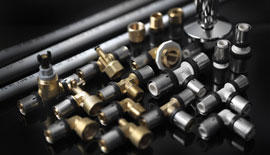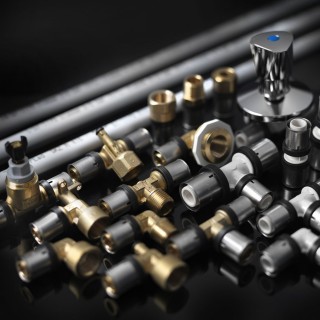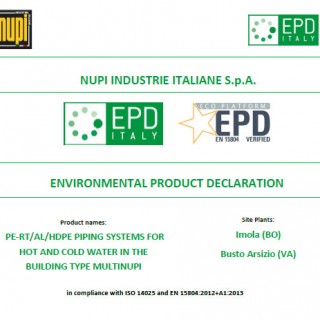MULTINUPI RANGE OBTAINS EPD ENVIRONMENTAL CERTIFICATION

The commitment made by NUPI INDUSTRIE ITALIANE S.p.A. continues in determining the environmental performance of its products through the study of their life cycle (LCA). In addition to the already existing EPDSs Environmental Product Declarations, available for the Niron and Polysystem polypropylene ranges as well as for Elofit polyethylene pipes and fittings, today the company also boasts the same certifications for Multinupi, a multilayer metal-plastic piping system with brass and PPSU mechanical pressure fittings. The published EPDs have been drawn up in accordance with Standard UNI EN ISO 14025, following the rules of UNI EN 15804 + A1 for construction products, the regulation and PCR of the Italian Program operator, EPDItaly. The contents of these EPDs are mainly aimed at industrial and commercial users of the product and allow to improve environmental communication between producers on the one hand (business to business), and distributors and consumers on the other (business to consumers). Having an EPD allows professionals to choose products that meet specific sustainability criteria, necessary for the design of buildings from a Smart and Green Building perspective. EPD certified products are required by the main building certification systems such as LEED (American but also international), BREEAM (English but also international), HQE (French), DGNB (German) and ITACA (Italian) as well as in Italian legislative schemes (e.g. in sustainable public procurement, GPP). These are voluntary product certifications, which further enhance NUPI pipe and fitting systems because they are produced according to the best standards of sustainability and responsibility.
Multinupi EPD
MULTINUPI EPD is specific for the product and therefore allows a LEED project to obtain the maximum score/credit that can be achieved. Furthermore, according to the provisions of the CAM decree for purchases relating to public administration works, it allows to obtain rewarding scores, both in the procurement phase and in the design phase. An important feature of this EPD is that it is of the "From the cradle to the grave" type and shows the environmental impacts of all the process phases, from the extraction of raw materials to the end of life of the product itself, also analyzing the phases of use and maintenance, installation and including possible end-of-life reuse, recovery and recycling scenarios.
Results obtained and their interpretation
The environmental impacts were calculated on the basis of a specific functional unit that takes into account the real application of the Multinupi system. It is therefore composed of a total quantity of Multinupi pipes and fittings necessary for the distribution of hot and cold water in a specific 100 sqm apartment, similar to that represented in EN 806. The most advantageous distribution in terms of optimization of the quantity of pipes and fittings is the manifold type, made possible thanks to the flexibility of the Multinupi system. Since the impact categories are multiple and focus on the one best known in common jargon, or on Global Warming (GWP) or carbon footprint, it can be said that the MULTINUPI piping system produces much less kg of CO2 than a similar system of metal pipes and up to four times less than a similar copper system.
GENERAL CONSIDERATIONS ON THE ENVIRONMENTAL PROFILE OF NUPI PIPES
NUPI piping systems are energy efficient, as the extrusion and molding processes are less energy-intensive than those of metal materials. They allow to reduce the environmental impacts due to transport, thanks to the lightness of the plastic material. They eliminate the impacts relating to the use and maintenance phases; in fact, plastic pipes were considered to have zero impact due to their durability characteristics (equal to 50 years for the pipes for the distribution of hot and cold water inside the buildings, 100 years for the underground polyethylene pipes for the distribution of water, gas and industrial fluids and 30 years for underground plastic multilayer pipes for service stations). Strong, durable, lightweight and flexible, these piping systems require significantly less energy to manufacture, transport and install than metal alternatives (copper, steel) and, with superior corrosion and abrasion resistance, also ensure excellent hygiene of the transported drinking water or excellent quality of the transported fluid. NUPI EPDs are available both on NUPI website and on EPDItaly website that has published them within its environmental product certification program.


